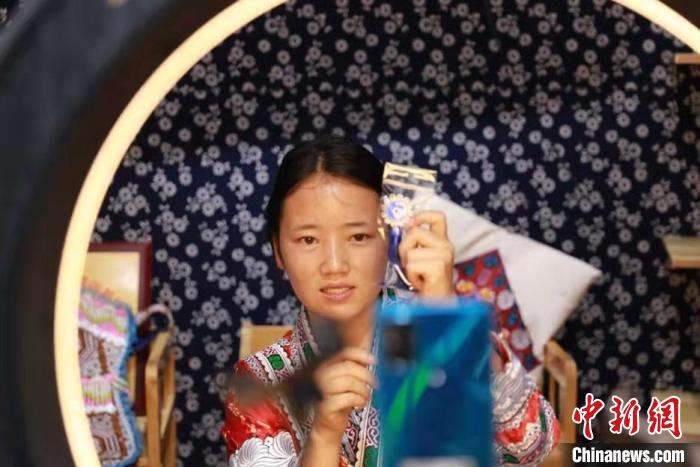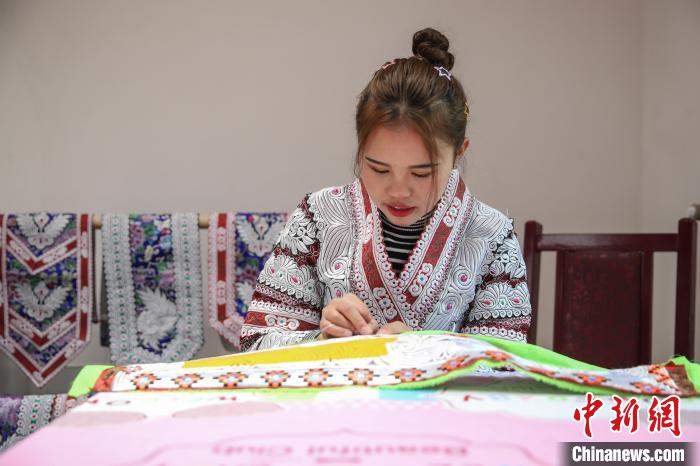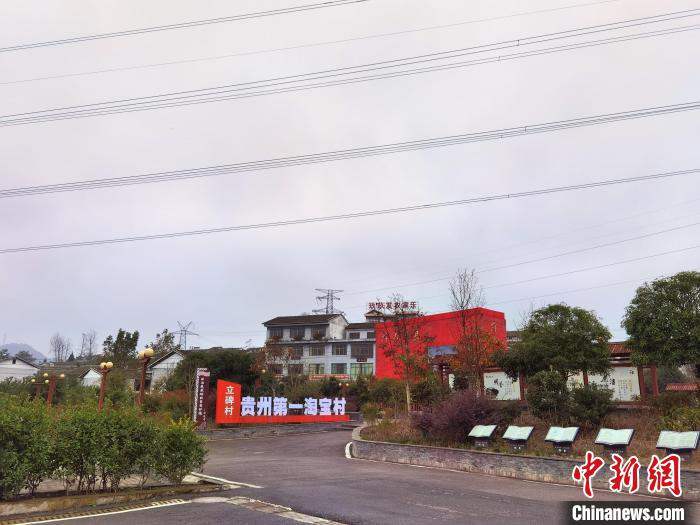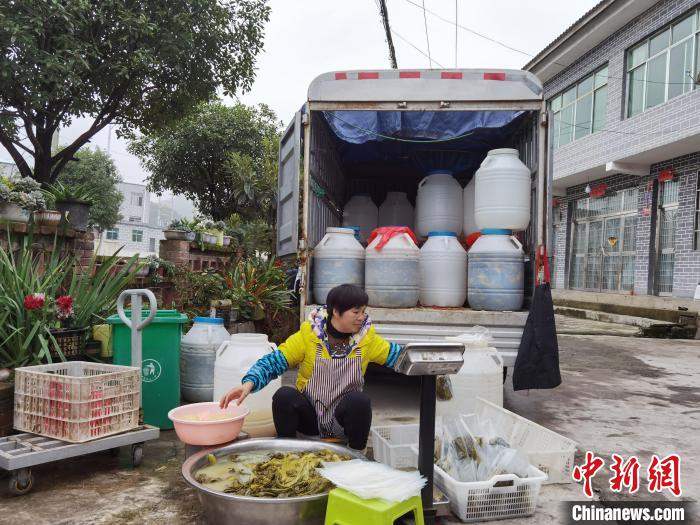Expanding 5G network coverage helps remote villages tap thriving e-commerce market in SW China’s Guizhou
E-commerce is flourishing in remote villages in southwest China's Guizhou province thanks to the expansion of 5G network coverage, with this expansion being supported by the installation of over 30,000 5G base stations across the province. In recent days, many younger villagers have been gearing up for the country’s “Double 11” online shopping bonanza.

Yang Wenli promotes a local handicraft in a live-streaming session at an embroidery workshop in Huawu village, Xinren Miao township, southwest China's Guizhou province. (Photo courtesy of the interviewee)
Once plagued by poverty, Huawu village in Xinren Miao township in the province’s Qianxi city, is now witnessing a thriving e-commerce business due to the expanding 5G network. Many villagers have been jumping on the live-streaming bandwagon to sell local agricultural products and handicrafts on e-commerce platforms.
Villager Yang Wenli, born in the 1990s, now promotes embroidery works and traditional costumes of the Miao ethnic group online at an embroidery workshop. Yang said that the workshop sold nearly 70 percent of all its embroidered products through live-streaming sessions.
Taking part in the “Double 11” shopping festival for the first time this year, Yang is busy making Miao embroidery products with other embroiderers in the workshop these days, while promoting the products on e-commerce platforms for about three hours every day. Yang and her fellow villagers also sell local specialties online, such as glutinous rice cakes and locally-made rice wine.

A woman makes embroidery works from the Miao ethnic group in Huawu village, Xinren Miao township, southwest China's Guizhou province. (Photo/Qu Honglun)
A similar story is unfolding in Libei village, Yongjing town, and Xifeng county of the provincial capital Guiyang. Libei is Guizhou’s first Taobao Village, a rural e-commerce hub that features Alibaba’s logistics, service and training capabilities to encourage farmers to engage in the online sales of farm produce and local specialties.
Long Rui, also born in the 1990s, is a local e-commerce entrepreneur who often drives his van to nearby villages to purchase agricultural products, including pickles, eggs, dried chili peppers, and then sells them online.
“Normally, I sell over 1,500 kilograms of pickles every week, and the figure is expected to double during the ‘Double 11’ shopping festival,” Long said. He added that since all the local specialties can always be sold at good prices online, he earns an annual income over 1 million yuan (about $156,500) for selling these products.
Long revealed that local farmers have become their own sales agents with the help of 5G networks and smartphones.

Yang Wenli promotes the traditional costumes of the Miao ethnic group on her WeChat Moments. (Screenshot/Yang Wenli’s Wechat Moments)

Photo shows Libei village in Guiyang city, capital of southwest China's Guizhou province. (Photo/Zhou Yanling)

A villager packs homemade pickles in Libei village, Guiyang city, capital of southwest China's Guizhou province. (Photo/Zhou Yanling)
Photos
Related Stories
Copyright © 2021 People's Daily Online. All Rights Reserved.










